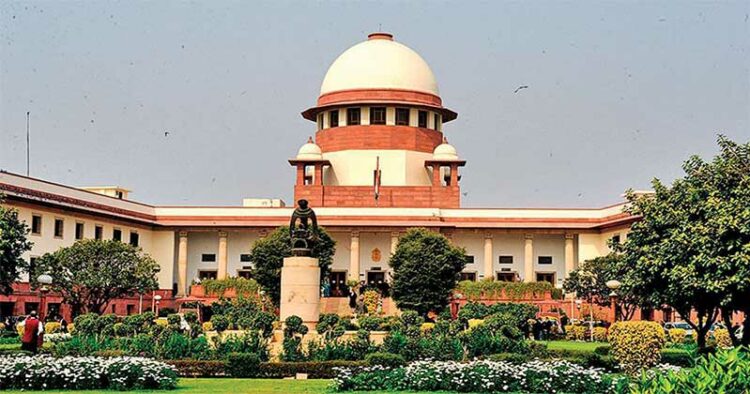Supreme Court on Monday observed that “Every charity or good work is welcome, but the intention needs to be checked,” while hearing a petition against forced religious conversions, reported Live Law. Justice M R Shah said that inviting people to convert to other religions by offering medicines and food grains is a “very serious” issue.
A file was filed by advocate Ashwini Kumar Upadhyay seeking direction from the Centre and states to take strict steps to control fraudulent religious conversion by “intimidation, threatening, deceivingly luring through gifts and monetary benefits”. The bench of Justices M R Shah and C T Ravikumar was hearing the plea.
“The purpose of charity should not be conversion. Allurement is dangerous,” the top court said and admitted that forced religious conversion is a very serious matter. When a lawyer questioned the maintainability of the plea, the bench said, “Do not be so technical. We are here to find a solution. We are here for a cause. We are here to set things right. If the purpose of the charity is good then it is welcome but what is required to be considered is the intention. Do not take it as adversarial. It is a very serious issue. Ultimately it is against our Constitution. When everyone stays in India, they have to act per the culture of India,” the bench observed.
The bench of Justices MR Shah and CT Ravikumar invited the Centre and States to file a detailed affidavit on the issue of forceful conversions.
There have been serious allegations against some religious orders and missionaries that they were converting people from other religions by presenting various forms of charity including education for their children. The apex court will now take up the matter on December 12.
Supreme Court had recently said that Forced religious conversion may pose a danger to national security and impinge on the religious freedom of citizens and asked the Centre to step in and make sincere efforts to tackle the “very serious” issue.
The court had warned a “very difficult situation” will emerge if proselytisation through deception, allurement and intimidation is not stopped.
Earlier, the Gujarat government had told the top court that freedom of religion does not include the right to convert others and requested the top court to remove a high court stay on the provision of a state law that requires prior permission of the district magistrate for conversion through marriage.
On September 23, Supreme Court asked for responses from the centre and others to the plea.
Upadhyay presented in his plea that forced religious conversion is a nationwide problem which needs to be controlled immediately. “The injury caused to the citizens is extremely large because there is not even one district which is free of religious conversion by ‘hook and crook’,” the plea submitted.
The plea also states that Incidents are reported every week throughout the country where conversion is done by intimidating, threatening, deceivingly luring through gifts and monetary benefits and also by using black magic, superstition, and miracles but Centre and States have not taken stringent steps to stop this menace.”
The plea has also sought directions to the Law Commission of India to frame a report as well as a Bill to control religious conversion by pressure and through monetary benefits.



















Comments